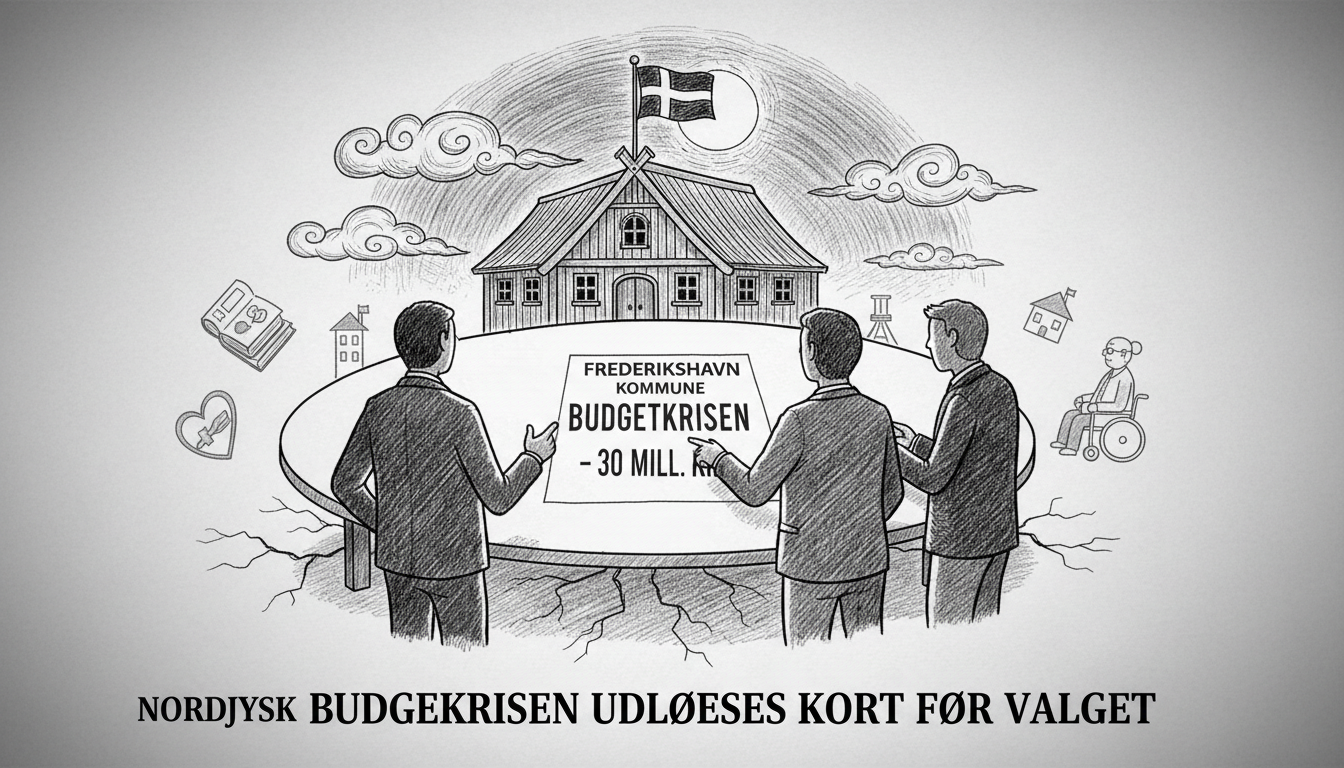A major financial shortfall has rocked local politics in Northern Denmark just days before municipal elections. Frederikshavn Municipality faces unexpected budget overruns totaling 30 million Danish kroner annually, forcing potential revisions to recently approved spending plans.
The budget crisis emerged barely six weeks after local politicians celebrated passing a comprehensive financial plan. That agreement included funding for youth centers, improved schools, better elderly care, and port debt reduction. Now officials must consider reopening budget negotiations.
Mayor Karsten Thomsen expressed surprise at the development. He stated he cannot comment in detail until receiving the full financial report later this week. The timing creates particular challenges with election campaigning at its peak.
Local government administration discovered the missing operational funds in upcoming year budgets. The family services department shows the most severe overruns. Officials initially projected 17 million kroner in additional 2025 costs. That estimate has now jumped to between 27 and 30 million kroner.
Municipal Director Thomas Eriksen described the situation as massive budget overruns that require immediate clarification. In his briefing to politicians, he called the overspending unacceptable given its scale.
Politicians first learned about the financial problems on Wednesday. They received the formal briefing from the municipal director on Friday. The rapid disclosure timeline creates election complications.
Christina Lykke Eriksen, chair of the Children and Youth Committee, expressed deep frustration. She called the situation completely unacceptable. As the politically responsible official for the affected department, she faces direct accountability.
The financial department now recommends adding 30 million kroner annually as permanent operational funding for family services. This development raises fundamental questions about the 2026-2029 budget's basic assumptions and content.
Conservative mayoral candidate John Lamp Henriksen hopes budget reopening won't be necessary. He noted that restarting negotiations would put all agreements back into discussion.
The timing highlights structural challenges in Danish municipal budgeting. Local governments must balance ambitious service promises with financial reality. This tension becomes particularly acute during election periods when political incentives favor popular spending commitments.
Danish municipalities operate under strict budget frameworks set by national government. They provide most welfare services including schools, elderly care, and child services. Budget overruns can trigger mandatory spending cuts or tax increases.
Frederikshavn's situation reflects broader Nordic local government challenges. Many municipalities struggle with accurate cost projections for welfare services. Demographic changes and inflation create additional pressure on public finances.
Politicians behind next year's budget have been called to an emergency meeting about the financial situation. The outcome will determine whether recently approved initiatives proceed or face cancellation before implementation.
International observers should note this demonstrates Nordic transparency in public finance management. Budget problems become public quickly, unlike systems where financial difficulties might remain hidden longer. The immediate disclosure allows for public debate before elections.
The case shows how Scandinavian welfare models face constant financial pressure. Even in well-managed municipalities, accurate budget forecasting remains challenging. Service expectations often outpace available resources.
What happens next depends on the detailed financial analysis. Politicians await the full report before deciding consequences. The situation may affect voter confidence in local government financial management regardless of which party wins the upcoming election.

